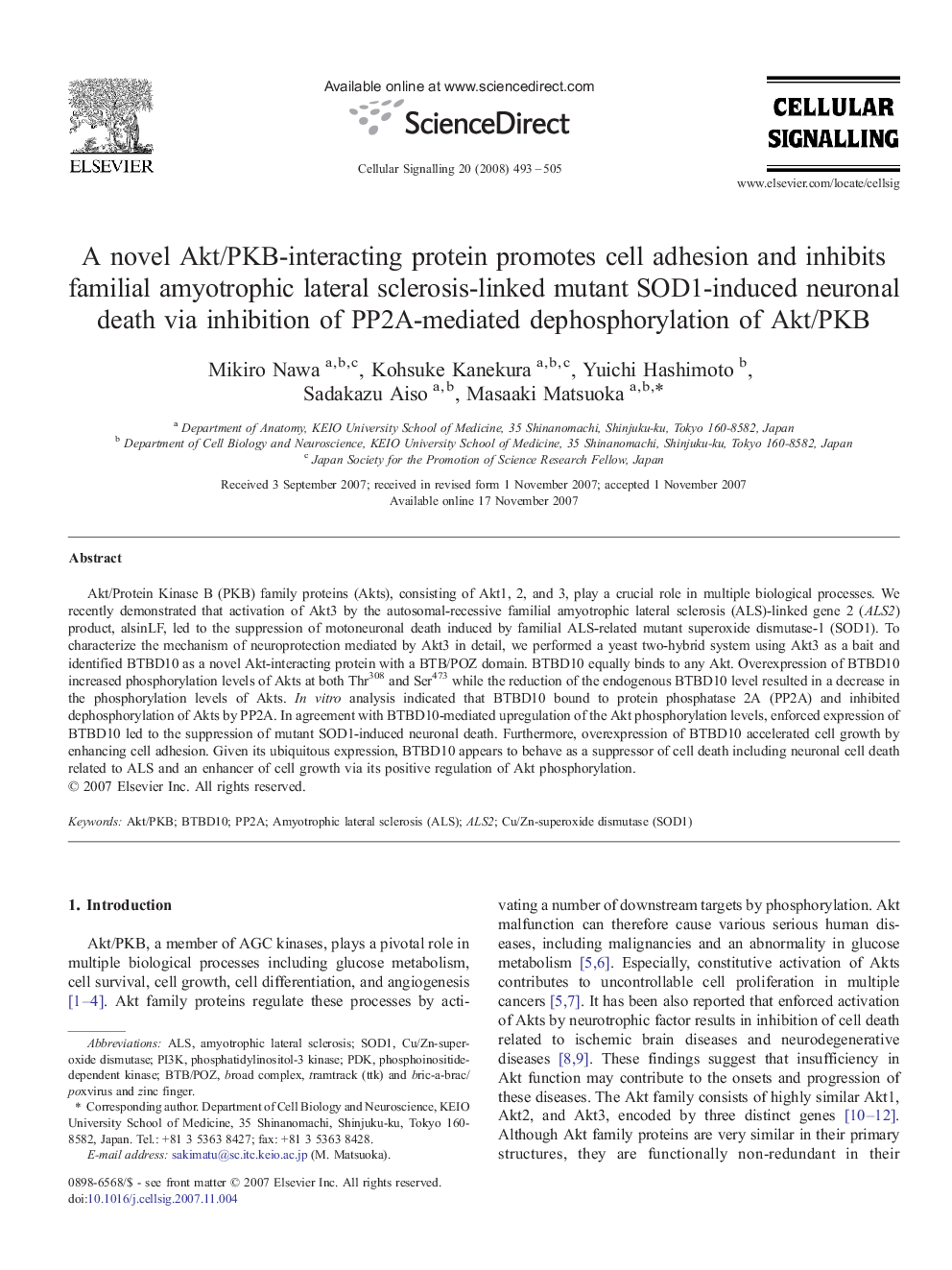| Article ID | Journal | Published Year | Pages | File Type |
|---|---|---|---|---|
| 1964032 | Cellular Signalling | 2008 | 13 Pages |
Akt/Protein Kinase B (PKB) family proteins (Akts), consisting of Akt1, 2, and 3, play a crucial role in multiple biological processes. We recently demonstrated that activation of Akt3 by the autosomal-recessive familial amyotrophic lateral sclerosis (ALS)-linked gene 2 (ALS2) product, alsinLF, led to the suppression of motoneuronal death induced by familial ALS-related mutant superoxide dismutase-1 (SOD1). To characterize the mechanism of neuroprotection mediated by Akt3 in detail, we performed a yeast two-hybrid system using Akt3 as a bait and identified BTBD10 as a novel Akt-interacting protein with a BTB/POZ domain. BTBD10 equally binds to any Akt. Overexpression of BTBD10 increased phosphorylation levels of Akts at both Thr308 and Ser473 while the reduction of the endogenous BTBD10 level resulted in a decrease in the phosphorylation levels of Akts. In vitro analysis indicated that BTBD10 bound to protein phosphatase 2A (PP2A) and inhibited dephosphorylation of Akts by PP2A. In agreement with BTBD10-mediated upregulation of the Akt phosphorylation levels, enforced expression of BTBD10 led to the suppression of mutant SOD1-induced neuronal death. Furthermore, overexpression of BTBD10 accelerated cell growth by enhancing cell adhesion. Given its ubiquitous expression, BTBD10 appears to behave as a suppressor of cell death including neuronal cell death related to ALS and an enhancer of cell growth via its positive regulation of Akt phosphorylation.
